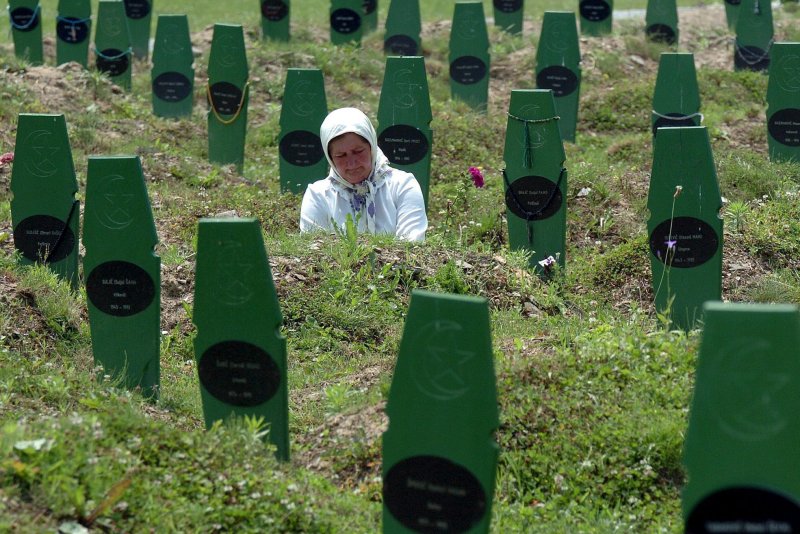Moslem Fatima Selimovic visits the grave of a relative who died in Srebrenica in 1995. Photo by Mzwele/EPA-EFE
July 19 (UPI) -- The Netherlands government was 10 percent responsible for the deaths of 350 people in the 1995 Srebrennica genocide in Bosnia, the Dutch Supreme Court ruled Friday.
The Mothers of Srebrenica, an activist and lobbyist group that represents thousands of survivors, sued two decades ago to hold the Dutch government accountable for 8,000 deaths it says were caused by the Serbians during the Bosnian War.
Friday's court ruling provides compensation for families of the 350 Bosniak Muslims who died at the refugee camp.
"Dutchbat [troops] acted unlawfully in the evacuation of 350 men," the court said in its decision. "They took away the chance of the men to stay out of the hands of the Bosnian Serbs."
Although the court said the Dutch were responsible, it estimated its liability at "10 percent of the damages suffered by the surviving relatives."
The families will receive a few thousand euros, much less than they sought.
Dutch troops were sent to Srebrenica under U.N. orders to protect the enclave in July 1995, but Serbian forces led by war criminal Ratko Mladic attacked and forced them to withdraw. Hundreds of boys and men tried to escape in a convoy of vehicles, but they were captured and killed and their bodies dumped into mass graves.
The massacre still resonates in the Netherlands nearly 25 years later.
"Last week some of the Dutch peacekeepers who were actually involved in this case are also suing the state saying the Dutch state put them in a situation which was unmanageable and they actually couldn't do anything," said Thijs Bouwknegt of the Netherlands Institute for War, Holocaust and Genocide.
The high court's ruling Friday affirmed a lower court ruling.















